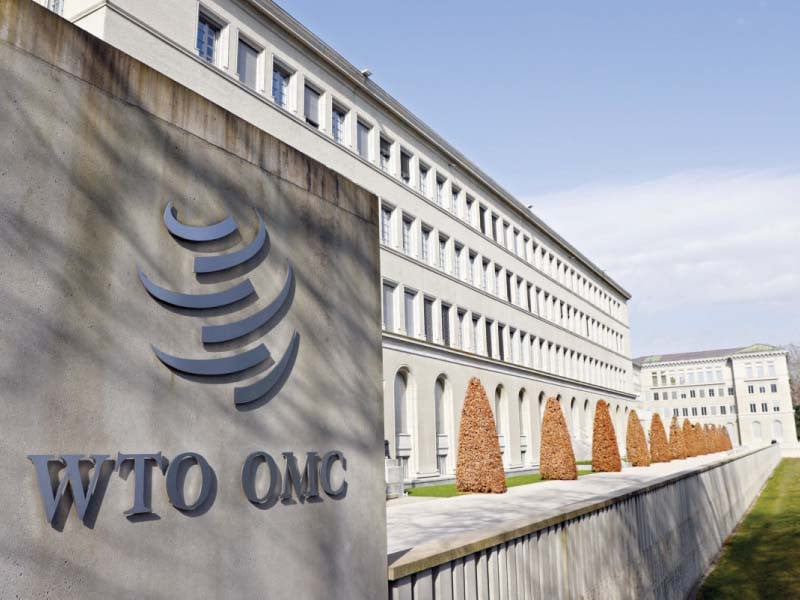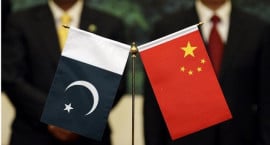
Except for a diplomatic success for India, the recent G20 summit could not make any progress on the hot and biggest issues the global economy was facing despite fears of another slowdown, said former British prime minister Gordon Brown.
Brown’s remarks during his presidential lecture at the Annual Public Forum of the World Trade Organisation (WTO) highlight the challenges the world is facing because of China’s encirclement and the Ukraine war, which is causing a change in priorities in trade.
“There is no progress on the issues that we face during the G20 summit except a diplomatic success for India,” said Brown, who is also the UN Special Envoy on Global Education.
India hosted the world’s top 20 economies last week and managed to produce a declaration after the meeting despite growing tensions between the West, Russia and China.
The G20 summit illustrated the deadlock in coordinating global economic policy despite the threat of low economic growth, said the former UK PM, who was described by WTO Director-General Ngozi Okonjo-Iweala as a global champion of multilateralism.
“No new G20 finance for climate mitigation and adaptation, no advances in the regulation of artificial intelligence and to prevent a so-called splinternet, and little but warm words for the relief of debt and famine in Africa,” Brown said.
Emphasising that extreme poverty was due to be eliminated by 2030 but it is now estimated to be afflicting 570 million people, Brown regretted that none of the international institutions intended to tackle this problem are as effective as they could be – from the UN Security Council to the World Food Programme and humanitarian aid programmes.
The world needs to enter a new era of international cooperation and renewed multilateralism, he said.
“I want to suggest now is the time for reconstruction, for a new era, even if it may seem, at first sight, we are striving against the odds,” said Brown, highlighting the need to forge a “new multilateralism”, particularly at a time when international cooperation is facing considerable resistance from various quarters.
He said despite these challenges, the World Bank is forecasting a cut in its funds, even as two-thirds of low-income countries are facing debt distress, and both the WTO and the International Monetary Fund are warning of fragmentation.
“This is a world where at best cooperation is à la carte and at worst has fallen into disuse, replaced by confrontation. Most worrying of all is the gap – indeed the chasm – between our need for globally coordinated action and the ability to deliver it – or shall I say more correctly our willingness to deliver on it – is now wider than at any point in our post-war history,” Brown noted.
He underlined that climate change, pandemics and financial contagion can only be addressed “by globally coordinated action involving us bearing in mind that despite today’s wars, the biggest threats are no longer principally between or among nation states, but threats to humankind as a whole that know no national boundaries.”
The sheer scale of the global problems — climate, pandemics, financial stability, poverty, debt and famine — all linked to another global public good, trade, should mean “we have no choice but to create a launch pad and landing ground for new multilateralism”, he added.
Brown said these challenges cannot be addressed through approaches like decoupling and re-shoring of global supply chains.
He emphasised that beyond the underlying China-US split, the war in Ukraine and the halting response to energy and food inflation, debt and famine, there is something far bigger and more systemic that goes beyond any one politician’s ability to control.
“Three seismic shifts in our geopolitics explain why the old multilateralism will not work and why we need a new multilateralism: the shift from a unipolar world, the shift from neoliberal economics, and the shift from a hyper globalisation that was open but not sufficiently inclusive.”
The UN special envoy explained the common thread underpinning all three seismic shifts: a resurgent nationalism, characterised “not just by more border controls, more customs duties, and more immigration restrictions but at a geopolitical level by more civil wars (around 60 in number), secessionist movements (around 50 in number) and by more walls and fences physically separating countries (now 75, double the number in 1990).”
“We need to take seriously the WTO estimate in this week’s report that if the world splits into two separate economic blocs, the resulting reduction in international trade and loss of productivity from specialisation and scale economies would reduce real incomes over the long term by at least 5%, with low-income countries suffering most, dropping by as much as 12%.”
However, he said that there was still hope for cooperation, which was evident from last year’s 12th Ministerial Conference (MC12). The 164 WTO members agreed for the first time to slash fisheries subsidies to protect overfished waters, a 90-country trade in services agreement.
Before MC12, the WTO was in ICU and after the MC12, the WTO is out of the ICU but it still needs to secure agreements on global supply chains, special and different treatments and a functional dispute resolution mechanism, said a Geneva-based WTO official in a background briefing.
Published in The Express Tribune, September 14th, 2023.
Like Business on Facebook, follow @TribuneBiz on Twitter to stay informed and join in the conversation.

1724152318-0/beyonce-(1)1724152318-0-405x300.webp)
1728213758-0/Tribune-Pic-(2)1728213758-0-165x106.webp)


1727594410-0/diddy-(1)1727594410-0-165x106.webp)












COMMENTS
Comments are moderated and generally will be posted if they are on-topic and not abusive.
For more information, please see our Comments FAQ